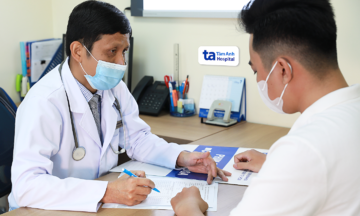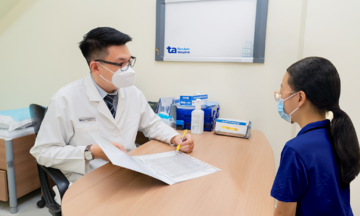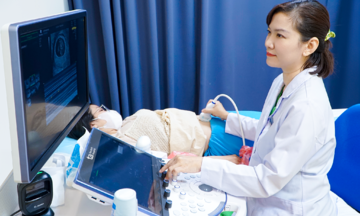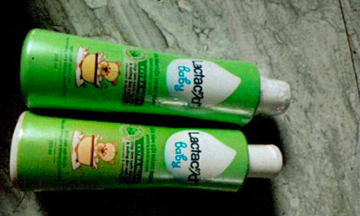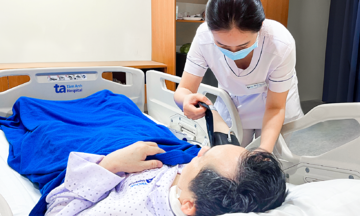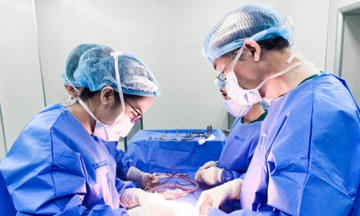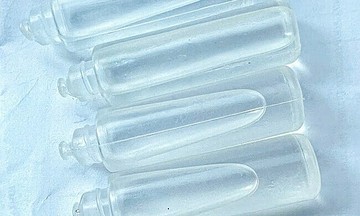Answer:
Leber's hereditary optic neuropathy (LHON) is a rare genetic condition. It typically appears suddenly in young adults, particularly males, and is primarily characterized by rapid vision loss. Symptoms usually begin in one eye and spread to the other within a few weeks or months.
Patients experience blurred central vision, difficulty reading and recognizing faces, and trouble distinguishing colors, especially red and green. In rare cases (known as complex LHON), additional symptoms may arise, such as movement disorders, tremors, or poor coordination due to effects on central nervous system areas beyond the optic nerve, as well as irregular heartbeat.
Most LHON patients experience moderate to severe vision impairment, but it rarely leads to complete blindness. However, reduced vision significantly impacts quality of life. There is currently no cure for LHON. Once the disease has progressed, treatment primarily focuses on minimizing optic nerve damage, preventing further progression, and improving the patient's quality of life.
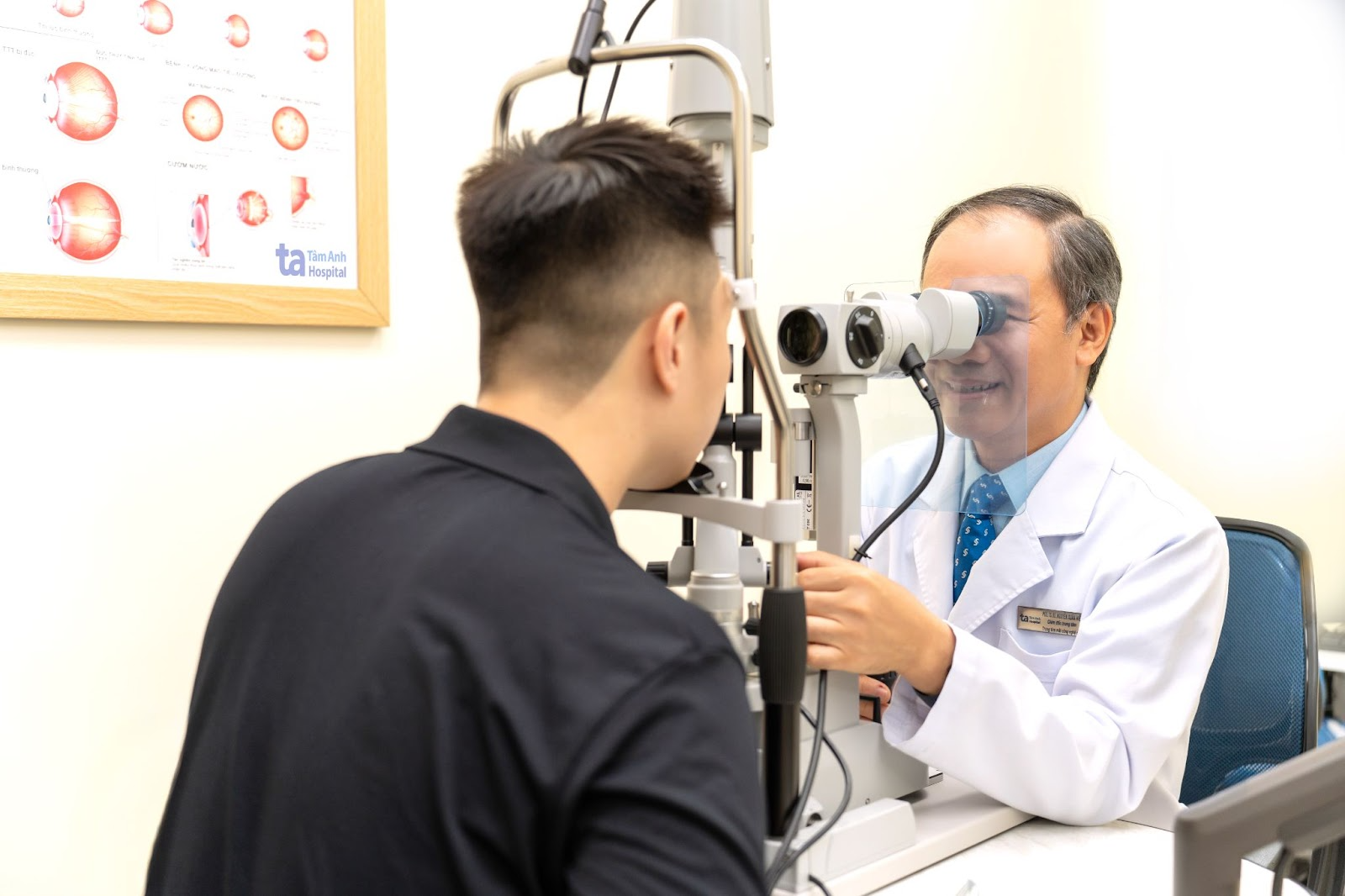 |
A doctor examines a young man's eyes. Illustration: Tam Anh General Hospital |
Since your son has been diagnosed with LHON, he needs regular eye exams and vision monitoring at specialized hospitals or clinics. Additionally, consider these lifestyle recommendations:
Avoid tobacco: Smoking and secondhand smoke increase the risk of optic nerve damage. Nicotine and other toxins in tobacco can worsen vision loss. If your son smokes, he should quit, and passive smoking should be avoided to reduce the risk of disease progression.
Limit alcohol consumption: Alcohol not only affects liver and nervous system health but can also impair mitochondrial function, the primary cause of LHON. Limiting or avoiding alcohol can help protect vision.
Avoid industrial chemicals: Industrial solvents, exhaust fumes, smoke, and other harmful chemicals can directly damage the optic nerve. Exposure to these environments should be minimized to limit further damage.
Maintain a healthy diet with vitamins: Vitamins like A, C, E, and B vitamins (especially B2, B6, and B12) can support eye health, improve cell metabolism, and contribute to optic nerve protection. However, individuals with LHON should consult a doctor before using any dietary supplements or vitamins.
Dr. Bui Viet Hung, MD., PhD.
Head of Vitreoretinal Department
High-Tech Eye Center
Tam Anh General Hospital
| Readers can submit questions about eye diseases here for doctors to answer. |





